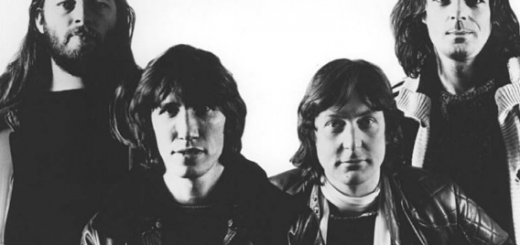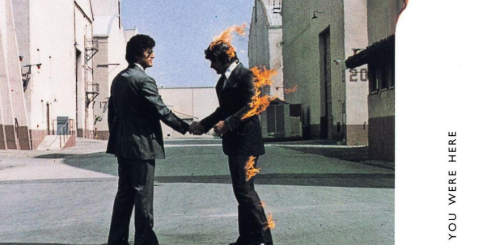Pink Floyd’s “Money” Lyrics Meaning
Pink Floyd is a band, at least as far as we know, that isn’t known for being sellouts or anything like that. For instance, their most celebrated work, 1979’s The Wall, can be interpreted as being anti-establishment. But on this song (“Money”), it’s as if the vocalist is just keeping it real. Or as Roger Waters explained, whereas he has remained a compassionate artist throughout the years, at some point he also adopted a capitalist spirit.
And this song is sorta based on that dichotomy, how the accumulation of money can be seductive even to someone who cares about his fellow man. Or put more plainly, you may regularly hear individuals griping about the wealth gap, income equality, the spiritual evils of money or what have you. But concurrently, it ain’t like any of these people are actually lining up to share their earnings.
So the bulk of this song actually centers on the vocalist’s desire for cash. It can be deemed that he’s been possessed by the capitalist dream, i.e. the simple concept that the more money you have, the more luxurious and ridiculously-expensive things you can spend it on. This includes true ‘four-star daydreaming’ on the part of the singer, such as visions of consuming caviar and even like purchasing a professional sports’ team.
It’s not until the third verse that David Gilmour implies the downside of the equation also, that some people having more also means that others will have less. But it ain’t like he’s trying to change the system or anything. Rather the vocalist is just noting, as stated above, that no matter how altruistic or religious-minded a person may speak on the matter of money, he doesn’t see anyone actually giving theirs away.
All in All
So conclusively, perhaps we can label this as a realistic ode to the almighty dollar. Yes, the singer may have his own get-rich fantasies, as perhaps we all do. But along the way of aspiring to fulfill these goals, it would appear that he has come to realization, through observation, that he is not going to reach that status by freely giving his money away.


“Money” and Pink Floyd
This track is from Pink Floyd’s album. The album, which is titled “The Dark Side of the Moon”, was released by Harvest Records on 1 March 1973.
Pink Floyd, a band from London, came out with a few massively successful albums during the 1970s, including 1979’s The Wall. And “Dark Side of the Moon” is also part of that list, having gone 15 times platinum for instance in the United States alone.
This song is actually referenced in Pink Floyd – The Wall, i.e. the 1982 film that is based on The Wall album.
‘Money” was written by Roger Waters, who was a member of Pink Floyd throughout the band’s first couple of decades of existence. And it was sung by the group’s lead vocalist David Gilmour, who apparently participated on all of Pink Floyd’s 20+ album except the very first one, 1967’s “The Piper at the Gates of Dawn”. And the entire crew is credited with producing this track.
To note, besides bassist Waters and vocalist Gilmour, at this juncture in history Pink Floyd was rounded out by drummer Nick Mason and keyboardist Richard Wright (1943-2008).
And the band itself was for the most part extant for five decades. This was from 1964 to 2014, though they took a 10 year break around the turn of the century. They also took another that lasted about 7 years beginning in the mid-aughts.

More Facts about “Money”
Pink Floyd pulled a Taylor Swift in 1981 by re-recording “Money”. They were forced to do so due to a beef between Capitol Records and Columbia Records for their compilation album “A Collection of Great Dance Songs”, which the latter label was involved in.
“Money” proved to be Pink Floyd’s first notable hit stateside. Here, it broke the top 10 of the Cash Box Top 100 and top 15 of the Billboard Hot 100. It also went on to be certified platinum in Italy and silver in the UK.
And even though those achievements may not be overly impressive in the grand scheme of things, this song is still obviously a Pink Floyd fan favorite when also taking its live performance history into consideration. And one of the reasons it is so renowned is due to David Gilmour’s guitar playing. The said guitar playing is considered to be one of the greatest solos using said instrument in the industry’s history.
The reason that we didn’t mention Pink Floyd’s homeland of the UK above in terms of this song’s chart history is because this track was not issued as a single in said country. According to some, the reason why is because back then there was a stigma amongst British artists as far as releasing singles were concerned.
Music Video
The music video to this piece, according to IMDb, was directed by Wayne Isham. However, that may not be the original from 1973 but rather the one filmed in 1989. And the band utilized the opportunity, in a roundabout way, to criticize income inequality.
More Interesting Facts
The professional recording of “Money” took place at London’s historical Abbey Road Studios. However, the original demos were recorded in a shed in Roger Waters’ garden. And apparently some of the sound effects from those recordings made it onto the final product.
The word “bulls–t” can be found in the second verse of this song. Remember that during this era, curse words being featured in mainstream music wasn’t generally deemed acceptable. Accordingly, there is also an issuance of this song known as the “Bull Blank” rendition which is devoid of said term.
The spoken word outro on this track is rendered by a number of individuals. These individuals for one reason or another were present at Abbey Road Studios at the time. What Pink Floyd went about doing is asking these people thought-provoking questions and then recording their answers to use on “The Dark Side of the Moon”.
This song is known for sporting a number of money-related sound effects. This was back in the day before artists really sampled, so the boys had to utilize some really creative techniques in the name of generating some of said effects.
And this track also utilizes some good ol’ fashioned multi-track layering. It should be stated that multi-track layering was a relatively arduous task given the technology of the day.









How is the last verse relevant? From “I was in the right” to the last ‘freight eleven”. It’s meaning, if any, eludes me.